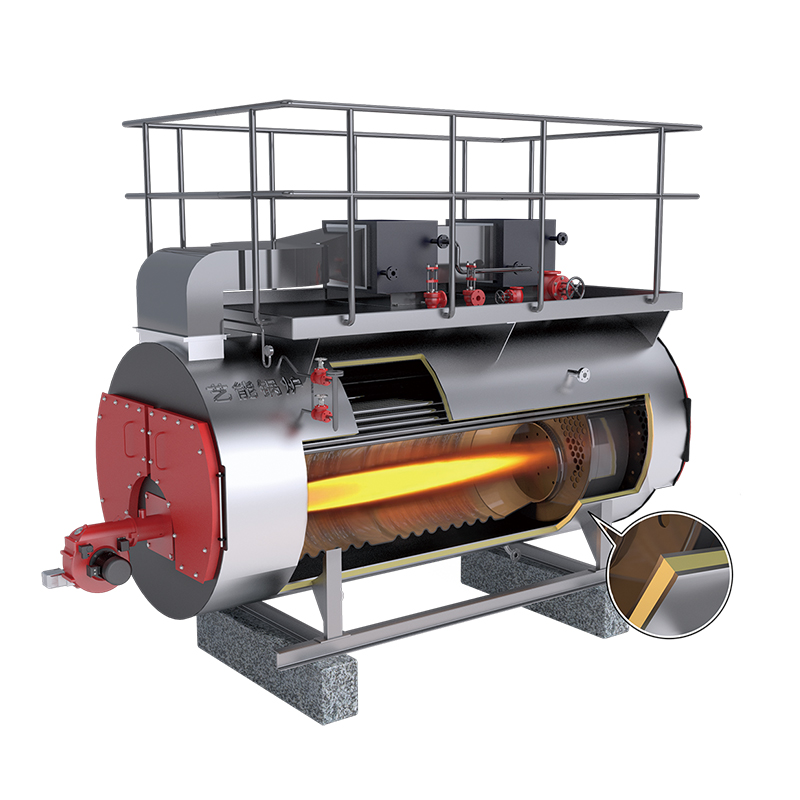reciprocating grate boiler exporters
The Role of Reciprocating Grate Boilers in Modern Industry
Reciprocating grate boilers have emerged as a prominent technology within the energy sector, particularly for industries seeking efficient and sustainable ways to harness biomass and solid fuels. As concerns about climate change and energy sustainability grow, these boilers present a viable solution for generating steam and power while minimizing environmental impact. This article delves into the workings of reciprocating grate boilers, their advantages, and their place in the global market, particularly focusing on exporters in this sector.
Understanding Reciprocating Grate Boilers
A reciprocating grate boiler operates on the principle of grate combustion, where solid fuels are burned on a moving grate. The reciprocating movement allows for effective fuel feeding and ash removal, optimizing the combustion process. Typically, this type of boiler is employed to handle various types of biomass, including wood chips, agricultural residues, and municipal solid waste. The design of the reciprocating grate enables uniform heating, promoting complete combustion and reducing harmful emissions.
Reciprocating grate boilers are equipped with several key components the grate itself, combustion chamber, furnace, and economizer. The fuel is loaded onto the grate, where it ignites due to the introduction of air. The movement of the grate facilitates the continuous flow of fuel, which is essential for maintaining a constant steam output. As the fuel burns, the ash generated falls through the grate, which can then be collected and disposed of or used for other purposes like fertilizers.
Advantages of Reciprocating Grate Boilers
1. Versatility One of the primary advantages of reciprocating grate boilers is their ability to handle a wide range of fuels. This flexibility makes them ideal for industries that may have varying waste streams or fluctuating fuel availability.
2. Efficiency These boilers are designed for high thermal efficiency, often exceeding 80%. This means that a significant amount of the energy in the fuel is converted into usable steam or power, reducing fuel consumption and operational costs.
3. Environmental Benefits By facilitating complete combustion, reciprocating grate boilers can significantly lower emissions of particulate matter and other pollutants. Many designs also incorporate advanced technologies such as flue gas recirculation and air staging to further minimize emissions.
reciprocating grate boiler exporters

4. Reduced Footprint Compared to other technologies, reciprocating grate boilers tend to have a smaller physical footprint. This is advantageous for industries where space is a constraint and allows for installation in various settings without extensive modifications.
5. Cost-Effectiveness With rising energy costs, the utilization of biomass and waste fuels in reciprocating grate boilers can lead to significant savings. Industries can leverage local resources, reducing dependency on costly fossil fuels.
The Export Market for Reciprocating Grate Boilers
As global awareness of sustainability and renewable energy grows, so does the demand for reciprocating grate boilers. Various countries now emphasize the development and installation of these technologies as part of their energy strategies. This trend has led to a burgeoning market for exporters of reciprocating grate boilers.
Regions such as Europe and North America are at the forefront of this trend, with strict regulations pushing industries to adopt cleaner technologies. Consequently, numerous companies have emerged as key players in the production and export of reciprocating grate boilers. These exporters focus on high-quality manufacturing, adhering to international standards while also providing custom solutions tailored to the specific needs of their clients.
In addition to traditional industries like pulp and paper and food processing, emerging sectors such as waste-to-energy facilities are increasingly utilizing reciprocating grate boilers. As cities and municipalities look for effective ways to manage waste while generating energy, the demand for these boilers is expected to grow significantly.
Conclusion
Reciprocating grate boilers represent a crucial advancement in energy production, providing an efficient and sustainable option for industries worldwide. Their ability to utilize a diverse range of fuels, combined with environmental benefits, positions them as a favorable choice in the pursuit of cleaner energy solutions. The growing export market for these technologies further underscores their importance in today's industrial landscape. As industries continue to adopt greener practices, reciprocating grate boilers will likely play a pivotal role in meeting energy demands while contributing to a more sustainable future.
-
Top Industrial Boiler Contractors Supplier & Factory Quality Products & ServicesNewsJun.10,2025
-
Panasonic Hot Water Boiler - Reliable & Energy Efficient Heating SolutionNewsJun.10,2025
-
Pennco Steam Boilers High-Efficiency & Durable SolutionsNewsJun.10,2025
-
Industrial Boiler & Mechanical Solutions Efficient Industrial Heating SystemsNewsJun.10,2025
-
Panasonic Hot Water Boiler - Energy-Efficient, Reliable Heat SolutionNewsJun.10,2025
-
Premium Power Plant Steam Boilers High Efficiency & ReliabilityNewsJun.09,2025

